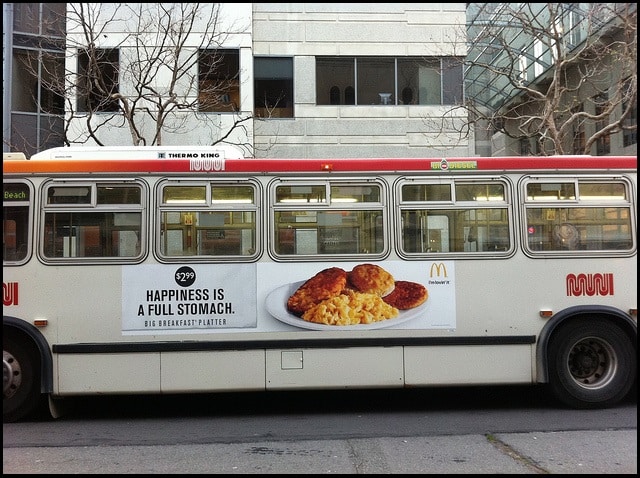Childhood Obesity News has mentioned before that the young people taking part in the pilot studies of the W8Loss2Go smartphone app are strangely unexpressive about their unhappiness.
This is puzzling because Weigh2Rock, Dr. Pretlow’s immensely helpful and popular website, is living proof that, under some circumstances, kids will talk about their unhappiness and struggles in very great detail. Maybe the anonymity makes the difference.
But while children and teenagers are not always the most articulate witnesses of their own lives, there is a source of information in the memoirs of grownups who recall what it was like to be obese children. Other adults, who were normal-weight children and became obese in their adult years, share at least some experiences and feelings with obese children, so it is possible to extrapolate back to the similarities they share with younger people.
A Study of Misery and Food
Researchers learned about the role of food in emotions in a roundabout way through a study funded by NASA for the benefit of future astronauts, who need to remain in a good mood throughout an extraterrestrial mission. When people responsible for doing important jobs are confined together in tiny spaces, their mental health is of the utmost importance. Should an effort be made to provide spacecraft crews with specifically designated comfort foods?The surprising answer from the University of Minnesota, according to the study, published in the journal Health Psychology, is—apparently not.
The researchers signed up 100 volunteers and showed them depressing film shorts (scenes from movies with depressing plots or moments). Then, the research subjects were fed two different kinds of food. One group received meals that qualify as comfort food—french fries, macaroni and cheese, chocolate treats—and the other group got healthy stuff.
After the films, everyone filled out questionnaires designed to assess their emotional conditions. We must keep in mind that self-reporting is always an iffy proposition. Also, in a bottom line that has almost become a joke, the study ended up recommending further research. But given those caveats:
The study concluded that we believe comfort foods provide us with some type of mood benefits, but there’s really no difference from eating other foods or no food at all.
The science is still out, however, so this conclusion could go into the “Everything You Know Is Wrong” category. There are different kinds of well-being, with different assessment tools. The objective kind is assessed by such standards as BMI measurements, and the subjective kind has to do with how subjects feel. Whether we like it or not, kids feel better when they eat junk food to comfort their emotional malaise. ScienceDaily.com reported on a large study a few years back:
Using data from the National Health Interview Survey in Taiwan—a nationwide survey carried out in 2001—the authors looked at the fast food and soft drink consumption, body weight and level of happiness of 2,366 children aged between 2 and 12 years old.
The study’s key finding was that children who ate fast food and drank soft drinks were more likely to be overweight, but they were also less likely to be unhappy.
Your responses and feedback are welcome!
Source: “Comfort Foods Can’t Relieve Your Misery, Study Says,” CBSlocal.com, 01/15/15
Source: “Junk Food Makes Kids Fatter, But Happier, Study Suggests.” ScienceDaily.com, 04/14/09
Image by Jason Tester


 FAQs and Media Requests:
FAQs and Media Requests: 











